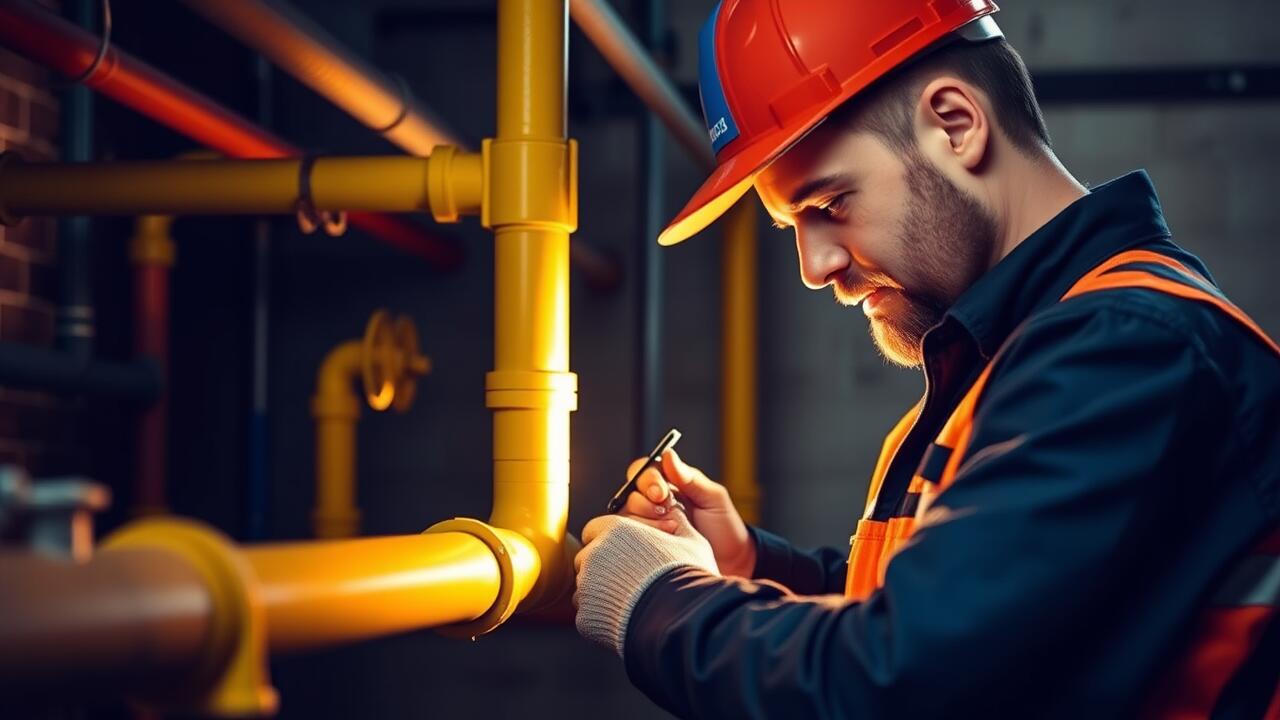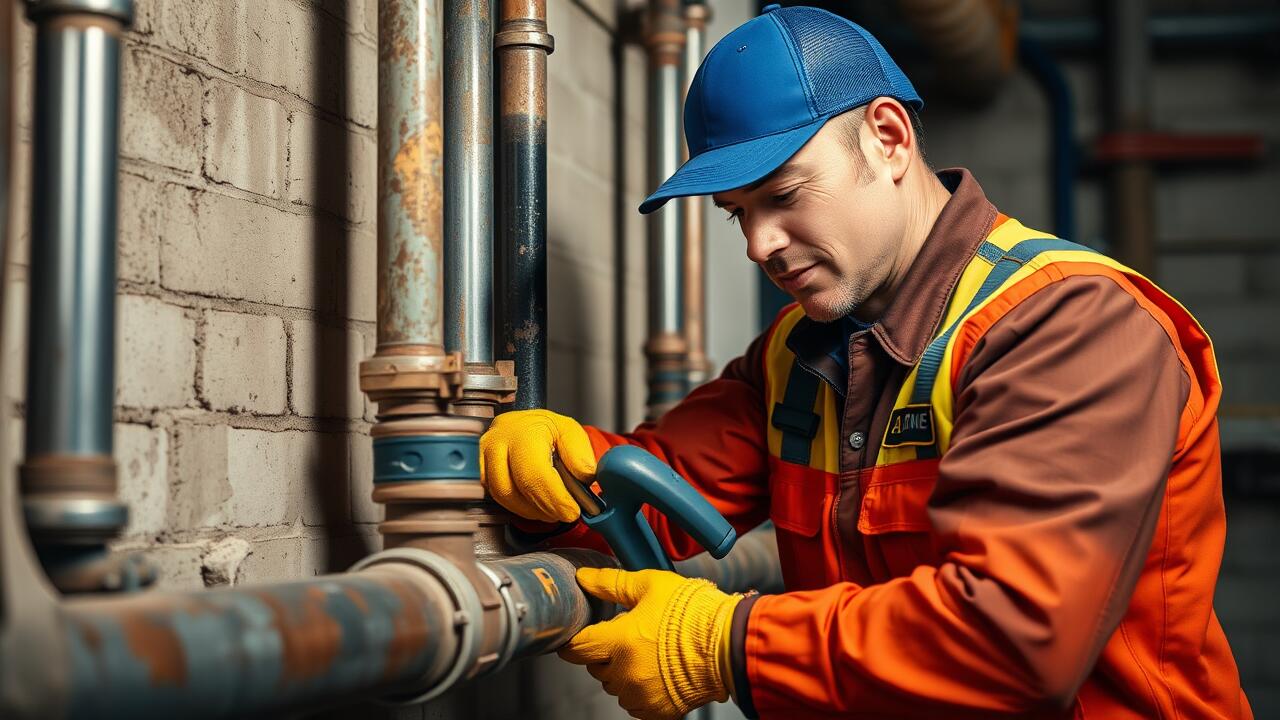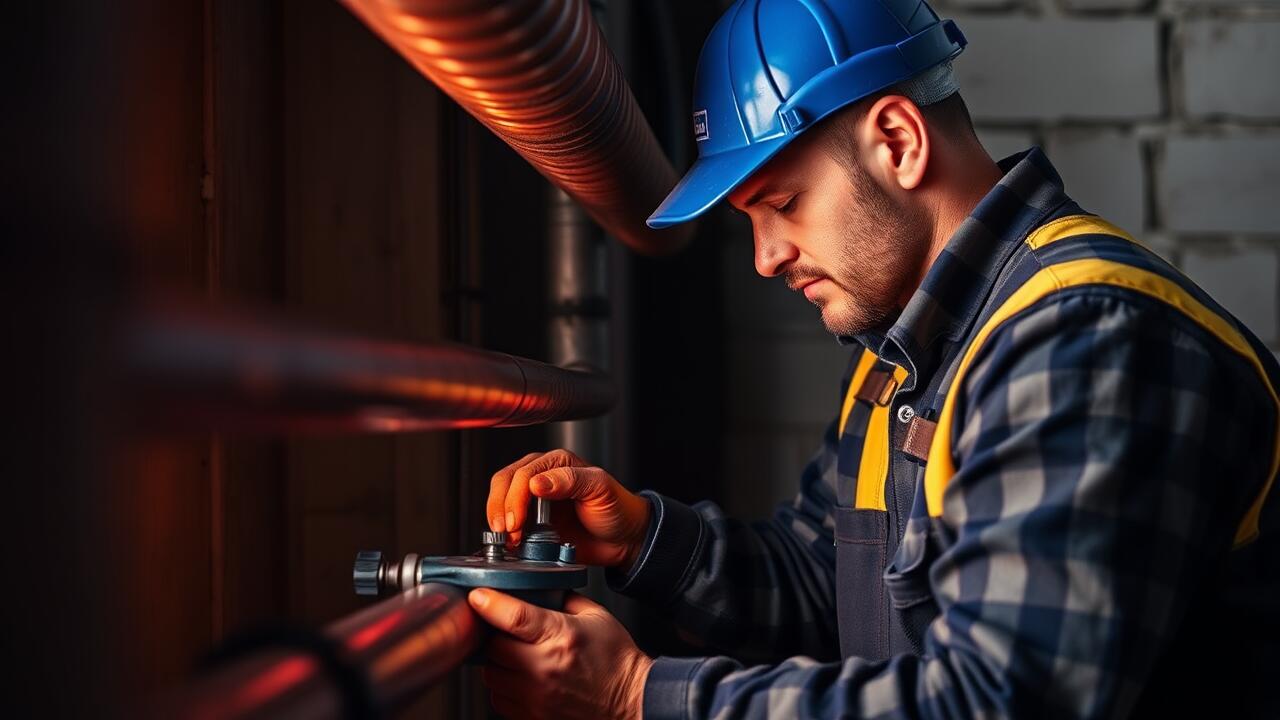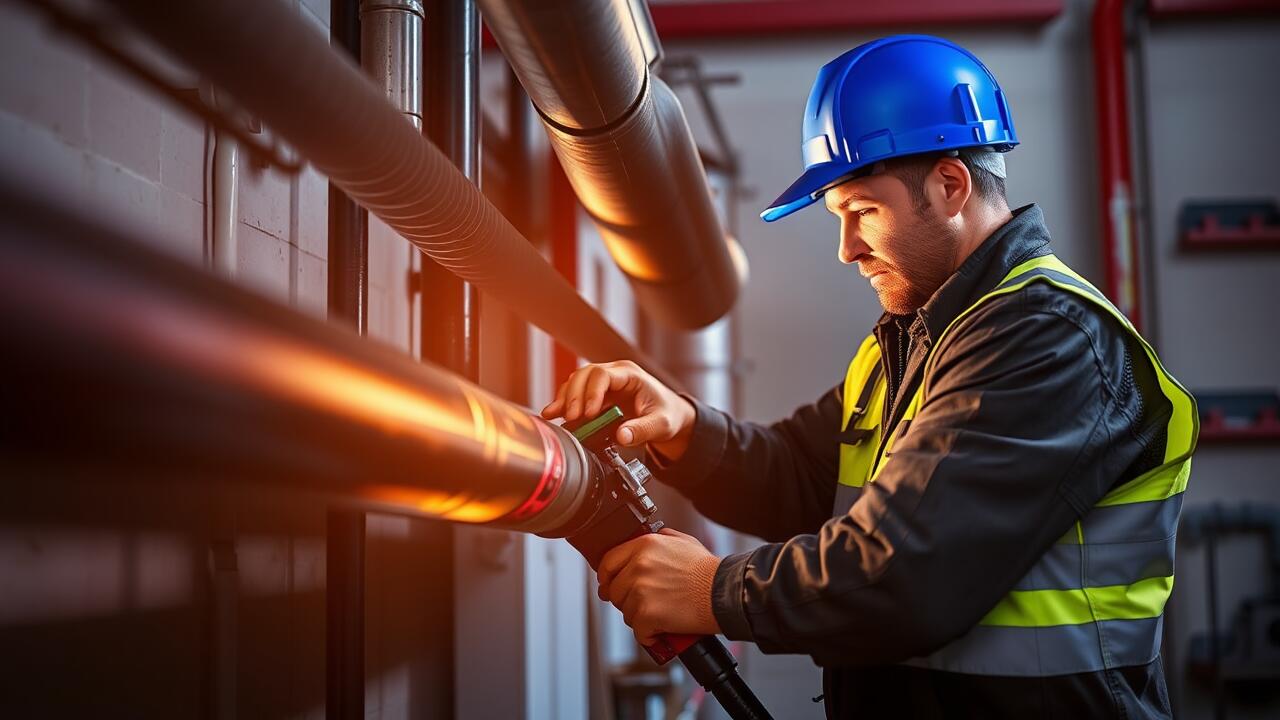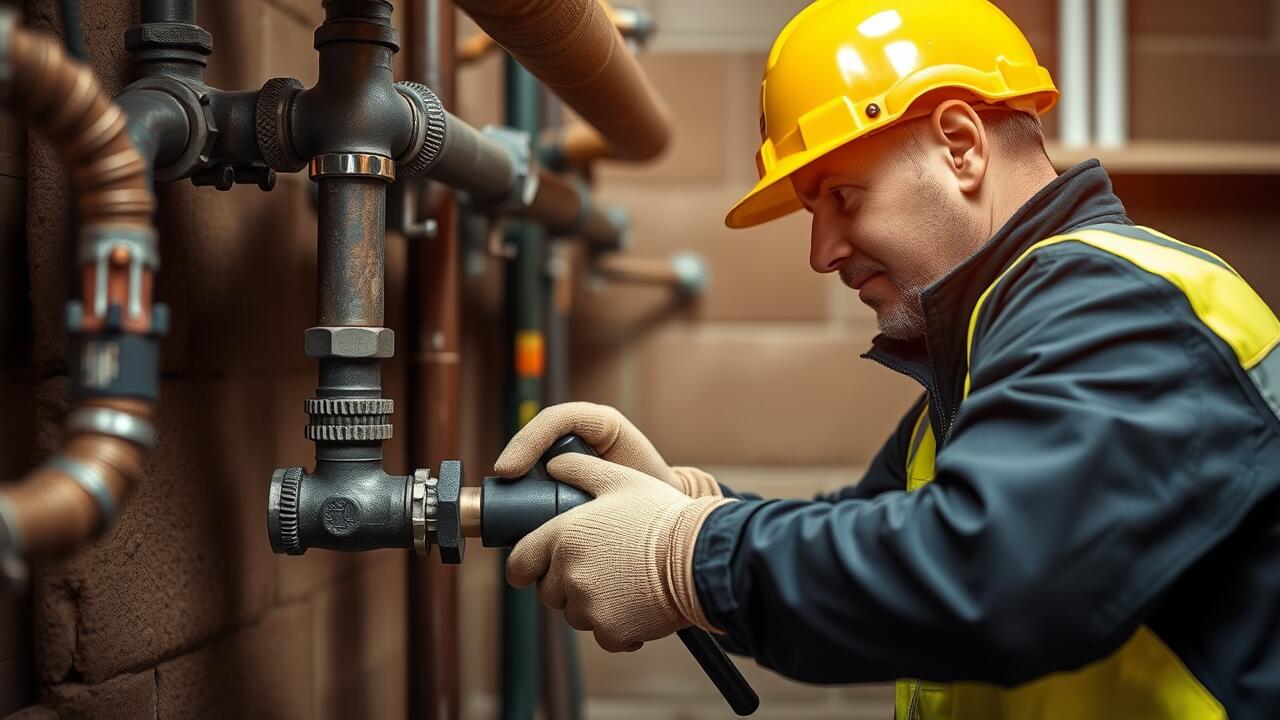
Corrosion and Chemical Reactions
Corrosion is a common issue that affects pipes over time, primarily due to the materials they transport and the environment they are in. This deterioration can occur through processes such as oxidation or the presence of acidic substances. When metal pipes are exposed to moisture and various chemicals, tiny reactions can lead to the formation of rust or other corrosive compounds. These reactions weaken the pipe structure, making them more susceptible to cracking and leaking.
Chemical reactions involving the pipe material itself can also contribute to cracking. Such reactions may include the breakdown of polymers in plastic pipes or reactions between different metals in a pipeline. This can create galvanic corrosion where dissimilar metals interact through an electrolytic process, leading to rapid deterioration in certain areas. To prevent such issues, homeowners might search for "Pipe repair near me" to find local solutions that can address these potential threats early on.
The Detrimental Effects of Corrosive Materials
Corrosive materials can significantly weaken the integrity of pipes, leading to various issues, including leaks and cracks. When substances like acidic chemicals or saline solutions come into prolonged contact with pipe surfaces, electrochemical reactions may occur. These reactions can erode the material's structure, introducing vulnerabilities that compromise its strength. Over time, this deterioration can result in costly damages and necessitate immediate attention from professionals.
The presence of corrosion often goes unnoticed until substantial damage has occurred. Homeowners should remain vigilant and aware of the signs of pipe deterioration. When cracks or leaks are detected, swift action is crucial. Searching for "pipe repair near me" can connect individuals with local services equipped to address these urgent problems efficiently. Timely repairs can prevent further damage and extend the lifespan of plumbing systems.
Signs of Pipe Cracking
Pipe cracking can lead to significant issues if not identified early. One of the most common signs includes visible water stains on walls or ceilings. These stains often indicate leaks originating from hidden cracks in the plumbing system. Additionally, homeowners may notice a sudden increase in their water bills, which signifies that water is escaping through a compromised pipe. Unexplained puddles around the home or damp areas in the yard can also hint at underlying pipe problems.
Another indication of potential pipe cracking is the presence of unusual noises within the plumbing system. Sounds such as gurgling or bubbling can suggest that air is trapped in pipes due to cracks or blockages. Homeowners should also pay attention to fluctuating water pressure, as it may be a result of a leak. Regular inspections are crucial for early detection. If signs of pipe damage are present, searching online for "pipe repair near me" can help find professional assistance to address the issue promptly.
How to Identify Potential Issues Early
Regular inspections can help identify potential pipe issues before they become severe. Homeowners should pay attention to visible signs like discoloration on walls or ceilings, which may indicate water leaks. Additional indicators can include unusual sounds like dripping or hissing, which could signal a problem within the plumbing system. Keeping an eye on your water bill is also crucial; sudden increases may suggest leaks that need immediate attention.
If you suspect a pipe issue, it’s wise to consult professionals for assessment and repair. Searching for “pipe repair near me” can connect you with local experts who can conduct thorough inspections. Early detection often saves costly repairs and downtime. Addressing potential cracks or leaks as soon as possible minimizes damage and maintains the integrity of your plumbing system.
Immediate Actions to Take
Detecting a pipe crack can trigger immediate concern as it may lead to significant water damage. First, turn off the water supply to prevent further leakage. This action reduces the risk of flooding and allows for better assessment of the damage. Next, drain any remaining water from the pipes by running faucets or flushing toilets. This step helps in relieving pressure and minimizing water loss while preparing for repairs.
After ensuring the water is turned off, evaluate the extent of the crack. If the damage appears superficial, temporary solutions like pipe clamps or epoxy seals might suffice until a professional can assess the situation. For more severe cracks, it's advisable to seek professional assistance promptly. Searching online for "pipe repair near me" can yield local experts ready to assist with necessary repairs, ensuring the integrity of your plumbing system is restored efficiently.
Steps to Follow When You Discover a Crack
Upon discovering a crack in your pipes, the first step is to assess the extent of the damage. Turn off the water supply to prevent further leakage and limit any potential flooding in your home. Afterward, check for visible signs of water damage in the surrounding areas, such as discoloration or moisture on walls or ceilings. Take note of these observations, as they will be helpful when you seek assistance. It's crucial to act quickly to minimize the potential for more severe damage.
Once you have a clear understanding of the situation, consider reaching out for professional help. Searching online for "pipe repair near me" can yield various local plumbing services ready to address your needs. A licensed plumber will have the experience and tools necessary to evaluate the crack fully and recommend the best repair options. Prompt action can save you time and money in the long run, ensuring that your plumbing system is restored to optimal condition.
FAQS
What are the primary causes of pipe cracks?
The primary causes of pipe cracks include corrosion, chemical reactions, temperature fluctuations, ground movement, and excessive pressure within the pipes.
How can I identify if my pipes are starting to crack?
Signs of pipe cracking include visible moisture or water stains, unusual sounds like dripping or hissing, a sudden spike in water bills, reduced water pressure, and the presence of mold or mildew.
What immediate actions should I take if I discover a crack in my pipe?
If you discover a crack in your pipe, immediately turn off the water supply to prevent further damage. Assess the situation and, if necessary, contact a professional plumber for repair.
Are there different repair options available for cracked pipes?
Yes, repair options for cracked pipes include epoxy lining, pipe relining, section replacement, or full pipe replacement, depending on the severity of the crack and the type of pipe material.
Can corrosion be prevented to avoid pipe cracks?
Yes, corrosion can be prevented by applying protective coatings to pipes, using corrosion-resistant materials, regular maintenance, and monitoring chemical levels in water to ensure they are within safe limits.
